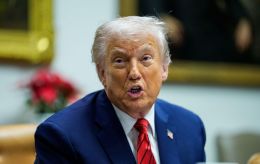Russia steps up digital authoritarianism and repression in information space - ISW
 Photo: Russia is stepping up digital authoritarianism using the experience of the DPRK (Getty Images)
Photo: Russia is stepping up digital authoritarianism using the experience of the DPRK (Getty Images)
North Korea and Russia have signed a digital communications cooperation deal. It aims to step up the Kremlin's digital authoritarianism and internal repression, according to the Institute for the Study of War (ISW).
On October 30, North Korea’s Ministry of Information Technology and Russia’s Ministry of Digital Development, Communications, and Mass Media signed a cooperation agreement covering telecommunications, information technology, and digital development.
The ISW recalled that Russia and North Korea signed a cooperation agreement between their respective prosecutors general in July. Following this, Russian Prosecutor General Igor Krasnov stated that Russia seeks to familiarize itself with North Korea’s judicial practices, particularly in telecommunications and information technology.
The ISW previously assessed that this agreement between the two prosecutor’s offices likely aligns with the Kremlin's efforts to expand its domestic control methods, bolstering control over Russia’s information space through messaging platforms and virtual private network (VPN) services.
“The details of the October 30 digital communications agreement are unclear, but it is likely similarly aimed at increasing Russia's tools for domestic information space repression,” the ISW report noted.
North Korean troops in the war against Ukraine
Last week, Ukrainian intelligence reported that North Korea has sent troops to support Russia in its war against Ukraine. According to the Defense Intelligence of the Ministry of Defense of Ukraine, around 12,000 North Korean soldiers are expected to arrive by year’s end to participate in battles in Russia’s Kursk region.
Pyongyang has also sent three generals to Russia, one of whom is the DPRK's Deputy Chief of the General Staff.
According to the US Department of State, approximately 8,000 North Korean soldiers are currently stationed in the Kursk region.
Meanwhile, Russian soldiers reportedly view the Kremlin’s decision unfavorably and display hostility toward their North Korean counterparts.

